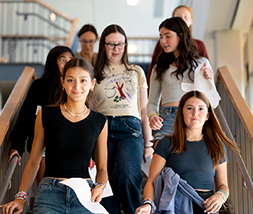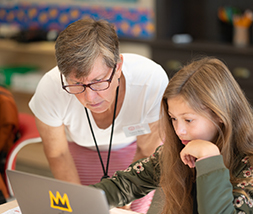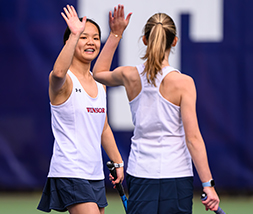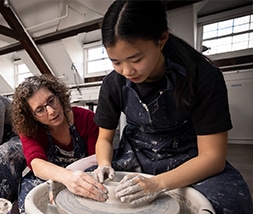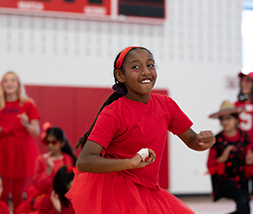On Resolutions
It’s the time of year for resolutions. One might ask why we make them in the dark days of winter, when we want to be our summer selves and have the hardest time meeting those goals. Perhaps the colder, darker months provide greater opportunity for deeper personal introspection, which leads to a desire to improve where we perceive shortfalls. Though I’m not convinced we should bother with these annual resolutions at all, I often find myself half-convinced that this year, I really will pick up those weights at least three times each week, or consistently make plans with friends, or finally develop the habit of daily flossing. (And really, who am I kidding on that last one?)
The common thread here is that each of these potential resolutions is personal to me as an individual, and depends on my regularly engaging in some act of self-improvement. As soon as I miss a day, I’ve failed in my effort to do better, to be better. Yet as humans, we are all bound to fall short from time to time. Even the most committed among us sometimes fail to meet our own expectations, and those of others.
Later this month, Winsor will honor the legacy of the Reverend Dr. Martin Luther King Jr. at an all-school assembly. Born on January 15, 1929, Dr. King would have turned 96 this year. In September, you might remember, we held an extraordinary assembly with Dr. Valda Harris Montgomery, who was eight years old when Dr. King—“Uncle Martin” to Valda—and his family moved in just down the street from her. We invited to that assembly some students from Boston Latin School, and Dr. Montgomery stayed afterward to talk specifically with our guests and some of our own Upper School students. Throughout her time talking with us, she focused in particular on Dr. King’s nonviolence philosophy, adapted from Gandhi and brought to Alabama for many battles—first and foremost for the Montgomery Bus Boycott, which began in 1955 and lasted over a year before the U.S. Supreme Court ruled that segregated public buses were unconstitutional.
Dr. King was only 26 when he became a national leader, and there were many people who thought he was going about it the wrong way. He was only 26 when he became young Valda’s “Uncle Martin,” someone who was part of her extended family first and a civil rights leader second.
This matters to me as I look at the Winsor community and see our young students, people with incredible ambition and huge hearts. They want to make things better; they make mistakes all the time—they are only human. Nowadays, we put Dr. King on a pedestal and see his great triumphs, which is only right. He remains a powerful inspiration in our work to make the world a better place. And he was a human being, striving to do great work despite the limitations we all have as humans, despite the misunderstandings, the opinions that don’t stand the test of time, and the youthful mistakes.
Every year we have the chance to learn more about Dr. King, about what the fight for civil rights has been and what might lie ahead. We have the chance to ask about what constitutes justice in our world, where it is most lacking, and what we can do about it. And every year, we get caught up in the worry about our own shortcomings, which leads us (we can hardly help it!) to making resolutions about things like exercise, flossing, and spending more time with friends. All this is good, of course. But let’s make sure to add one more resolution to the list: resolve to love our humanness, with its mistakes, messiness, and petty moments, and to love the humanness in everyone around us.
As the new year settles in, let’s also honor the successes of the people in our communities. At Winsor, we have the gift every day of celebrating the small moves forward, the huge hearts and big smiles of people who are young, who are human, and who will do incredible things, not despite their humanness, but because of it.

